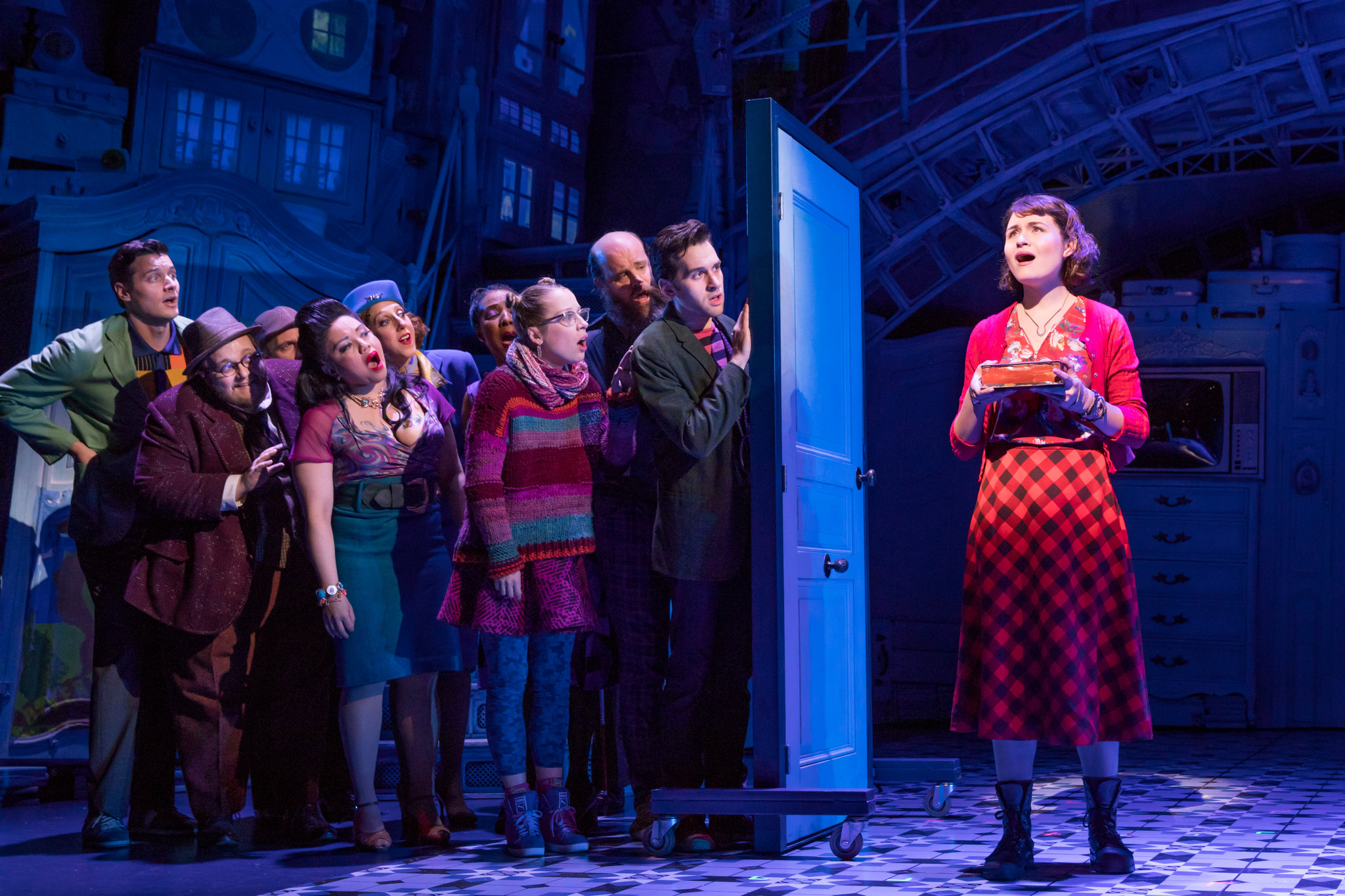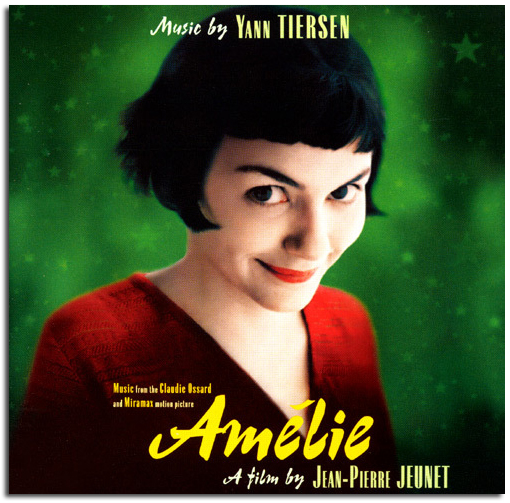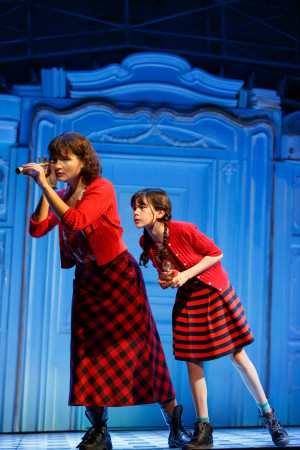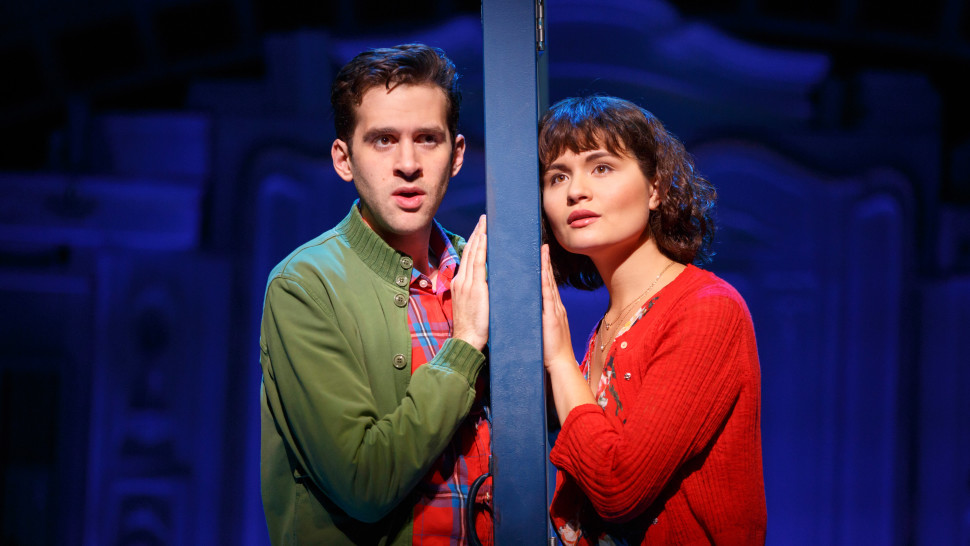Stage Door: Amélie, The Musical
 Wednesday, April 5, 2017 at 9:38AM
Wednesday, April 5, 2017 at 9:38AM By Dancin' Dan

Say what you will about the seemingly unending run of new Broadway musicals based on non-musical films, enough of them have been good enough that you write them off at your own risk. Kinky Boots and Waitress are just two recent examples of stage musicals that, if anything, improve on their source material. The just-opened Amélie, an adaptation of the 2001 Jean-Pierre Jeunet film, attempts to recreate the success of those two adaptations: An established, inventive director in Pam MacKinnon, music and lyrics by singer-songwriter Daniel Messé (of music group Hem) with some help from musical vet Nathan Tysen, and a book by the respected playwright Craig Lucas (Prelude to a Kiss). And of course, a Broadway star on the rise in the lead role: the angel-voiced Philippa Soo, who stole hearts in Hamilton and the Off-Broadway incarnation of Natasha, Pierre & the Great Comet of 1812.
Unfortunately, this new musical fails to reach the dizzying heights of Jeunet's purely cinematic film. But the way in which it fails that lofty goal is interesting...

I did not think going in to Amélie that the source material would make for a good musical. The tale of the do-gooder Parisian waitress who loves to solve others' problems but cannot solve her own is too plot-driven, with a lot of sidelines and tangents and quirky characters that normally does not lend itself well to the addition of songs. But Lucas, Messé, and Tysen have actually pared down the film surprisingly well, zeroing in on the titular heroine and the oddballs closest to her and picking the exact right moments for many of the songs. Amélie herself is a very interior character - she feels things very deeply, but has difficulty expressing herself for various reasons, which makes her an ideal fit for the musical treatment. And there could hardly have been a better actress to play her than Soo, whose perfectly round face and delicate-but-strong voice perfectly embody the character's hopes and fears.
Director MacKinnon corrals her team of designers to create a world that has a great sense of off-kilter fun. The many doors of David Zinn's set playfully allow something unexpected to come onstage from virtually anywhere, and his costumes feel of a whole while perefctly fitting each character's individuality. There are many wonderfully clever moments of staging, particularly in the show's earliest scenes with young Amélie (a perfect Savvy Crawford) and her parents. Amélie's pet fish, inexplicably renamed Fluffy instead of the film's Blubber, makes a memorable appearance as a puppet designed by Amanda Villalobos and given marvelous voice by Paul Whitty. And when Amélie meets Nino, the quirky boy who makes her heart beat a bit faster (swoon-worthy Adam Chanler-Berat), the entire ensemble opens up their commuters' briefcases to reveal cut-out hearts, which they make beat, singing Amélie's inner life for her.

Moments like those make the musical feel like a first-rate adaptation, and indeed, Amélie is almost never not a pleasure to watch (except for the Elton John pastiche number that, frankly, borders on being an insult). Lucas's book even comes up with a terrific thesis statement in Zeno's Paradox - the idea that in order to get somewhere, you must go halfway, and since there an infinite number of halves, you can never truly get there - which MacKinnon finds numerous inventive ways to visualize.
That all works. And the cast, gloriously diverse in age, ethnicity, and body type, never misses a beat. In particular, Tony Sheldon as Mr. Dufayel, the old man with brittle bones who keeps trying to perfectly replicate a Renoir painting, is wonderfully affecting.
But the songs... Admittedly, Yann Tiersen's bouyant original score for the film was always going to be a tough act to follow. And Messé and Tysen's music has a lovely lilt that floats along quite pleasurably. But there's nothing there to grab on to. Not a single melody sticks in the head, let alone a single lyric. By the time I got home after seeing Amélie, I found myself unable to recall even one song, which is a bit of a problem for a musical. The score is the blandest to be heard on Broadway in quite some time, which is a pity, because "bland" is the last word one would ever use to describe the film on which it is based, which had a tremendous sense of unique character and place.

Which is my other big problem with Amélie - nothing about it feels particularly Parisian. It's one thing to not have the actors speak in French accents, but aside from scenic design nods to Notre Dame and the Eiffel Tower, there's nothing about the set that evokes France. And the score has none of the hallmarks of French music. In fact, the score's blandness has the effect of sanding down everything interesting about the musical until it's one shiny, flat, perfectly pleasant surface. For all the good work on display, Amélie ends up as a living, breathing example of the differences between theater and cinema: Theater is ephemeral, disappearing as soon as it's done, while cinema is forever. You will likely enjoy both versions of Amélie, but the film will stay with you long after the musical has faded away.



Reader Comments (2)
I saw Amelie at its Berkeley tryout with Samantha Barks in the title role. I fell in love with the show instantly. It is interesting that many of the reviews I have read dismiss the music as bland when after I saw the show the first thing I wanted to do was buy the non existent cast album. It's one of my favorite experiences in watching live theatre and I see every tour that passes through San Francisco and Sacramento.
I agree with this. I saw it in Los Angeles. It starts out promsingly but never goes beyond cute. The music is fine but forgettable. And for a show in one act, it kind of drags to the finish.